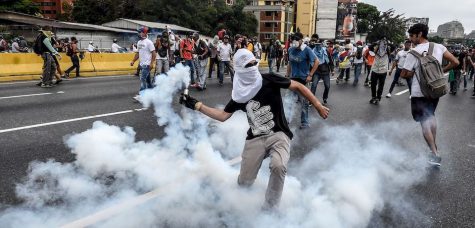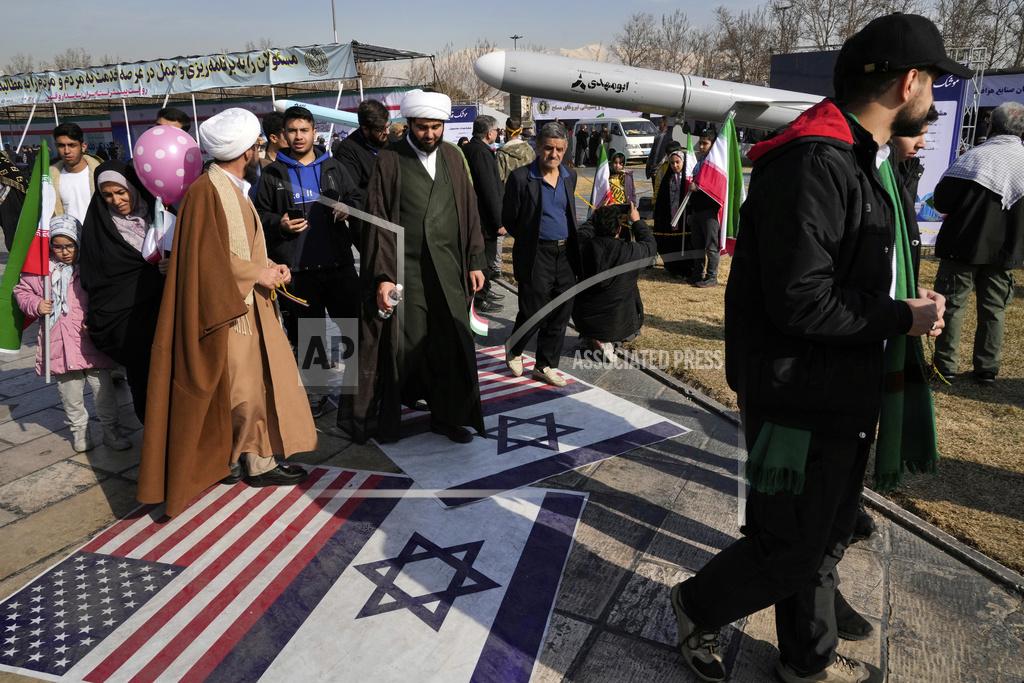Imagine if one day you received a long-distance phone call from your family begging you to send them food and medicine so that they can survive. This scenario is not out of the realm of possibilities; sadly, it is a reality for some. Two UNF students from Venezuela recently spoke to Spinnaker about their real-life struggles with the persistent concern for their families’ safety and the future of their home country.
Over the past 20 years, 10 percent of the Venezuelan population has fled a corrupt, inept, totalitarian regime which is responsible for the largest displacement of people in Latin American history. The country with the world’s most proven petroleum reserves, more than even Saudi Arabia, has to ration electricity and has regular shortages of food, medicine and even gasoline. For those who are lucky enough to get away, they worry about the family that they had to leave doesn’t go away.

Maria, a senior at UNF who has chosen to withhold her full name, told the Spinnaker about her experiences in Venezuela prior to coming to the United States in 2013.
“The security situation has been deteriorating since they took over. In 2009, two people broke into my house and tied me up and ransacked the house looking for money, jewelry and anything of value,” she recalled. “A week later, an underage drunk driver hit and killed my brother but, because of who their parents were, they never got in trouble for it. My friend’s dad and sister were killed on my birthday. I couldn’t even celebrate my birthday because all I could think about was ‘what if it was my parents?’”
On top of this, her family’s financial stability continues to be a major concern in her life when she is back at school.
“At first, my mom would send money to help, but with the depreciation of the Bolivar (Venezuelan currency), she wasn’t able to help me anymore. And now, they need my help. So, my sister and I are sending packages of milk, food, sugar, coffee, money and medicine back home because it’s impossible to find these things in the store.”
According to UNF Junior Maria Bermudez, another Venezuelan student at UNF, the situation continues to deteriorate.
“The last time I went back to Venezuela was four or five years ago and I can’t even imagine what it looks like now. It just progressively gets worse and it even affects people with money,” Bermudez said. “My aunt had generators to keep her house powered… during rolling blackouts due to electricity shortages, but it caught fire and the firefighters took over an hour to get there. When they arrived, they didn’t have any water! Luckily, my aunt had her own water but if she didn’t, her house would have burned down.”
Bermudez also shared her thoughts on why there weren’t any protests during the most recent elections: she believes the people are disillusioned.
“People are too busy at this point trying to survive… It’s been 10 years of protesting, 10 years of elections and there’s just no hope,” she explained. “They don’t have food, they don’t have medicine, they don’t have anything. You can’t worry about these protests that you don’t think are going to work. You worry about getting food for your family and groceries are ridiculously expensive. It’s just in such bad condition that people have given up on the protests.”
In all, Bermudez and Maria both agree that Venezuela needs help from the world, and especially the United States.
According to Bermudez, the people who oppose the regime don’t have the means to get rid of them on their own.
“The only hope we have is from the outside,” she said.
Maria, however, shared positive sentiments thanks to the people she has met here in the United States. She also couldn’t help but share her favorite quote in light of such difficulties:
“Be the change you want to see in the world”
– Arleen Lorrance
—
For more information or news tips, or if you see an error in this story or have any compliments or concerns, contact editor@unfspinnaker.com.















